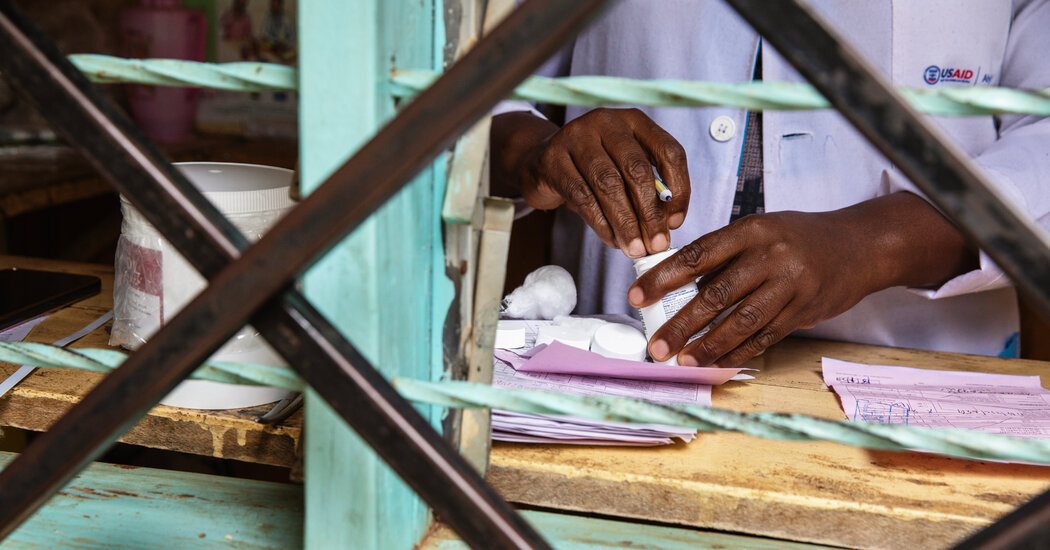Two weeks into President Trump’s sweeping freeze on foreign aid, H.I.V. groups abroad have not received any funding, jeopardizing the health of more than 20 million people, including 500,000 children. Subsequent waivers from the State Department have clarified that the work can continue, but the funds and legal paperwork to do so are still missing.
H.I.V. treatment and services were funded through the President’s Emergency Plan for AIDS Relief, or PEPFAR, a $7.5 billion program that was frozen along with all foreign aid on Mr. Trump’s first day in office.
Without treatment, millions of people with H.I.V. would be at risk of severe illness and premature death. The loss of treatment also threatens to reverse the dramatic progress made against H.I.V. in recent years and could spur the emergence of drug-resistant strains of H.I.V.; both outcomes could have a global impact, including in the United States.
The pause on aid and the stripping down of U.S.A.I.D. have delivered a “system shock,” said Christine Stegling, a deputy executive director at UNAIDS, the United Nations’ H.I.V. division.
On Jan. 28, Secretary of State Marco Rubio issued a waiver for lifesaving medicines and medical services, ostensibly allowing for the distribution of H.I.V. medicines. But the waiver did not name PEPFAR, leaving recipient organizations awaiting clarity.
On Sunday, another State Department waiver said more explicitly that it would cover H.I.V. testing and treatment as well as prevention and treatment of opportunistic infections such as tuberculosis, according to a memo viewed by The New York Times. The memo did not include H.I.V. prevention — except for pregnant and breastfeeding women — or support for orphaned and vulnerable children.
Although PEPFAR is funded by the State Department, roughly two-thirds of its grants are implemented through U.S.A.I.D. and the Centers for Disease Control and Prevention. Neither organization has released funds to grantees since the freeze was initiated.
Without immediate intervention, these funding suspensions could lead to devastating reversals in public health progress.
Source link




